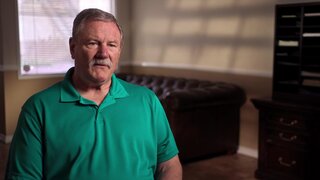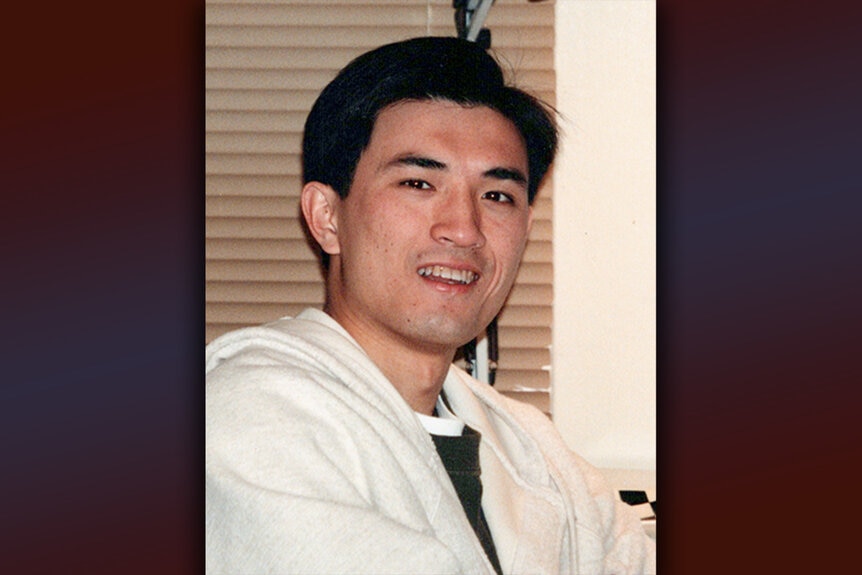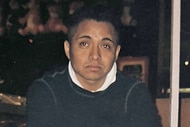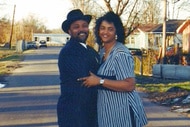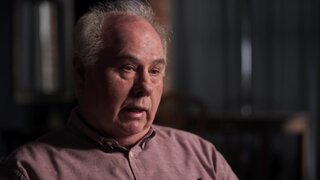Create a free profile to get unlimited access to exclusive videos, breaking news, sweepstakes, and more!
"His Throat Was Cut On Both Sides": 24-Year-Old O.C. Man Murdered "With Sincere Hate"
The brutal slaying of an immigrant family's son spreads terror through the tight-knit Orange County Vietnamese community.
Shortly before 8 a.m. on January 29, 1988, police responded to reports of the discovery of a body on high school tennis courts in Tustin, California.
“He was a young Asian man... His throat was cut on both sides,” Bruce Williams, Tustin Police Department detective, told The Real Murders of Orange County, airing Fridays at 9/8c on Oxygen.
“This was done with sincere hate and passion,” Williams added.
The victim is identified as Thien Ly
The victim had no identification on him. As the Crime Scene Unit collected evidence, they found a single key near the body, as well as a trail of blood that ended at the football field. Bloodhounds were used unsuccessfully to try to track down a murder weapon.
Around 3:30 that afternoon, police identified the victim as 24-year-old Thien Ly, whose family had reported him missing. The key found at the crime scene belonged to him.
The victim’s sister, Lily Tran, told investigators that Thien had gone to the high school to Rollerblade.
She and other family members said that Thien, an academic high achiever with two master’s degrees, had no enemies. "Everyone loved Thien," Lily said.
RELATED: “Evil to the Bone”: O.C. College Student Stabbed 41 Times in Campus Parking Lot
A possible motive to Thien Ly's murder
Police learned that Thien’s family had fled Vietnam in 1982. Prior to that his father had been imprisoned for six years in a North Vietnamese prison.
“He had been been a fairly high ranking officer in the South Vietnamese Army,” Tom Tarpley, a now-retired Tustin Police Department detective, said. “He had made a lot of enemies because of his fight of communism and his involvement with the South Vietnamese Army.”
Detectives considered that Thien’s murder may have been a retaliatory act for his father’s history.
“We had to definitely go down that road,” said Tarpley.
Working in collaboration with investigators from the Westminster Police Department, detectives on the case found no evidence of a vendetta against Thien’s father.
With the military lead shelved, police scoured the autopsy report for new clues. The pathologist who performed it estimated that Thien was murdered between 12 midnight and 8 a.m.
Clues emerge from Thien Ly's autopsy
The autopsy showed that Thien was stabbed 26 times in the front and back with a jagged short blade. The blade pierced his lungs, heart, and kidneys.
Investigators described the brutality as “overkill. It appeared that someone was trying to almost cut the head off of the victim," Tarpley said.
While the autopsy report vividly documented the brutality of the murder, it yielded no clues to the killer’s identity. The perpetrator’s DNA was not found on Thien.
Police were back at square one. They spoke with people in Thien’s close circle, including a former UCLA roommate — an older man named John, who claimed that Thien owed him rent money.
John offered an alibi for his whereabouts during the time of Thien's murder, saying he’d dined out with a friend then returned to his home in Santa Monica around 11 p.m.
As police worked to confirm John’s alibi, they learned that a former girlfriend had filed a domestic disturbance report about him.
“It did appear that John would lose his temper at times, which was obviously of a concern to us,” said Tarpley.
Meanwhile, Thien’s murder sparked widespread concerns for the Vietnamese community Orange County, according to former Los Angeles Times reporter Geoff Boucher. “They were wondering if this was a hate crime,” he said.
"We were scared because we didn't why Thien was targeted," Lily said.
Thien Ly's case takes a surprise twist
On March 1, detectives obtained a search warrant for John’s apartment. But the day they were going to go and execute this search warrant, the case took a twist.
Detectives got a phone call from the Alamogordo New Mexico Police Department, according to Det. Williams. The New Mexico Police Department had obtained letter that contained a “play by play” of the murder of Thien Ly, Tarpley said.
The recipient of the letter was Robert Delaney, whose family members saw the letter and notified authorities. The letter was signed by Jerry Lindberg and dated February 23, 1996, including details about Thien being stabbed in the front and back. Moreover, it mentioned that another man, Domenic, had been at the scene of the crime.
Because the murder had been in the news, police wanted to be sure they weren’t dealing with a false confession.

The author of the letter mentioned that Thien had had a key, a fact that was not released to the press. “The only person that would have known that there was a key there, besides the family, was the killer,” Tarpley said.
The letter began casually, said Boucher, who had access to it when he wrote about the case. “Then in the middle of the letter,” he said, “it takes a sharp turn into the macabre.”
Investigators surmised at the time that “this had to be a hate crime," according to The Real Murders of Orange County.
Gunnar Lindberg suspected of Thien Ly's murder
Police raced to locate Jerry Lindberg. The trail led to them to the Monett Missouri Police Department, where officers informed them that the man they were chasing was dead. His brother, Gunnar Lindberg, a known violent criminal and a fugitive, had assumed Jerry’s identity.
Gunnar was pretending to be his brother because he'd been running from the law for over a year.
O.C. investigators learned that a Tustin Police Department patrol officer had conducted a traffic-related field interview with Lindberg on December 29, 1995.
The report noted that 17-year-old Domenic Christopher was a passenger in Lindberg’s vehicle. The name Domenic had been mentioned the confessional letter.
Police learned that Lindberg and Christopher met while working at Kmart. Investigators tracked down the suspects to the home of Gunnar Lindberg’s uncle.
On March 2, 1996, Tustin police officers, along with the Orange County Sheriff’s Department SWAT team, arrested Lindberg and Christopher.
When authorities searched the residence where Lindberg and Christopher were staying, they found “a treasure full of evidence,” said Debora Lloyd, Sr. Deputy DA with the Orange County DA’s Office. “This mostly white supremacist. There were swastikas all over the place.”
In a container labeled with Gunnar’s name, detectives found drugs and a pair of blood-stained black gloves that were immediately sent for forensic analysis.
RELATED: O.C. Millionaire Medical Innovator Fatal Victim of His Girlfriend and Her Secret Lover
While awaiting results from the crime lab, police questioned the suspects. Christopher quickly came clean, according to The Real Murders of Orange County.
He said that he and Gunnar had gone out for fast food. “The whole time talking about how they wanted to kill somebody,” Williams said.
They spotted Thien at the tennis courts. Christopher said that he kicked Thien and that Lindberg killed him. On March 21,1996, Christopher was charged with first degree murder.
It took nearly a month for the blood analysis of the gloves to come back. The results showed that the blood on them was a mix of Lindberg’s and Thien Ly’s.
In April 1996, Lindberg was charged with first degree murder with the special circumstances of attempted robbery and a hate crime.
Robert Delaney, the recipient of Lindberg’s letter, had told an investigator for the Orange County D.A.’s office that Lindberg said he killed Thien “for the racial movement.” Lindberg also said killing Thien “gave him such a thrill.”
In May 1997, Domenic Christopher was convicted as an adult of first degree murder and sentenced to 25 years to life in prison.
That summer Lindberg’s trial began. He was convicted of first-degree murder and sentenced to the death penalty. Lindberg’s team appealed the sentence all the way to the Supreme Court, which upheld the verdict.
“This was the very first hate crime death penalty case in California,” said Lloyd.
In April 2023, Domenic Christopher was released from prison after serving 20 years.
Gunnar Lindberg is on death row at California’s San Quentin State Prison.
To learn more about the case, watch The Real Murders of Orange County, airing Fridays at 9/8c on Oxygen.


